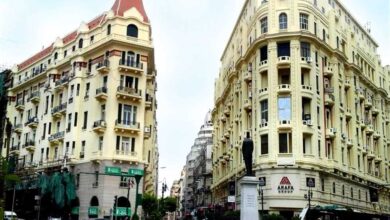Protests in Tahrir Square might be slowing down for now, but the ongoing struggle for dignity, freedom and social justice isn’t over. It has just moved to Imbaba.
In this poor neighborhood with an estimated population of around 1 million in northeast Giza, members of the popular committees that came together for neighborhood protection during last winter’s uprising are now taking the demands for change into their own hands, starting with local issues. The campaign they launched, called “Know Your Rights,” is already making headway.
“We didn’t want a small group of people to do this. People have to ask for their rights… Everyone must know that as long as he pays taxes, it’s his right to lead a decent living. The government has to provide me with the basic services,” said Ayman Youssef, coordinator of the popular committee of Imbaba.
The campaign’s goal is to mobilize people to be active in their communities and unite to demand their rights from government.
“We wanted to do field work in the streets among people. The piece of bread we eat every day is politics, the traffic congestion is politics, and the garbage in the streets is politics. That’s why in order to solve these problems and for Egypt to become a better place, we have to start from the bottom at the grassroots level,” said Ehab Ali, a member in the popular committee in Imbaba who is working on the campaign.
The grass-roots campaign was launched by the popular committees that formed during last winter’s uprising to protect neighborhoods when police withdrew from the streets in the midst of nationwide protests that toppled former President Mubarak.
Popular committees meet to discuss what they believe are the most pressing problems facing their neighborhoods. Then they devise strategies on how to pressure the government to respond.
Similar initiatives took place in nine other areas in Greater Cairo, each focusing on its local problems.
The idea behind the campaign is that communities know their own needs better than any politicians or civil society organizations based outside of their neighborhoods. And in post-Mubarak Egypt, people feel that their demands should be heard.
“This is the true democracy. It’s the popular democracy, not elite democracy. Voting in parliamentary and presidential elections is not enough. The main stakeholders have to be the decision makers all along even after electing MPs,” said Ahmed Ezzat, a lawyer who is the general coordinator of the Popular Committees to Defend the Revolution, a national coalition of local popular committees.
The popular committee in Imbaba was the first to kick off its campaign. Members of the “Know Your Rights” campaign are focusing on pressuring the government to remove garbage from the streets. Currently, municipal services like garbage collection do not service Imbaba.
At a recent event, members of the popular committee held signs that read: “Remove the garbage, you will kill us,” “How will our children get educated when the garbage is blocking the school’s gate?” and “Where does our money go when the garbage drowns the streets?”
On the second day of a series of planned events in Imbaba, the campaigners distributed flyers to passersby, explaining the campaign and collecting their signatures for a petition that would be sent to the governor in protest against poor garbage collection which takes a heavy toll on the neighborhood.
“Imbaba belongs to the Giza governorate using the same budget as Mohandiseen, so why does Imbaba look like this while Mohandiseen is clean?” Youssef, an organizer of the campaign, told a passerby in reference to a nearby upper-middle-class neighborhood.
“Aren’t we human like those living in the rich areas? The street looks like a big garbage factory,” said Dalia Hussein, 36, a resident of Imbaba who signed the petition. “The campaign is great because we will never achieve anything except if we are united.”
The campaign, which uses the slogan “We’ll visit all of Egypt’s streets,” aspires to deal with other social and economic issues such as housing, minimum wages, health care, education, and transportation by bringing them to the attention of the authorities.
A week after the campaign’s first function in Imbaba, the governor of Giza visited the neighborhood and promised to remove all the garbage in a week. The campaign organizers celebrated the success when a day later a truck arrived to take away the garbage in one of the areas, but the problem still lingers in the rest of Imbaba.
According to Ezzat, the popular committees started thinking about the campaign after the latest crackdown by the ruling Supreme Council of Armed Forces (SCAF) on protests in Tahrir Square at the beginning of August. The crackdown ended the 23-day sit in,
A week before dismantling the sit-in, SCAF released a statement on its Facebook page accusing April 6 Youth Movement, an instrumental group in January 25 revolution, of attempting to sow discord between the people and the army. This is in addition to SCAF member General Hassan al-Ruweiny’s claim that April 6 and a number of civil society organizations were being trained and funded by foreign countries.
The campaign has been gaining momentum in the past week and organizers are communicating with popular committees outside of Cairo to widen the campaign.
“The state has launched a defamation campaign against revolutionaries, so we decided to go to people where they live. We want every neighborhood to be Tahrir Square by initiating a continuous discussion about people’s social and economic needs,” added Ezzat.




